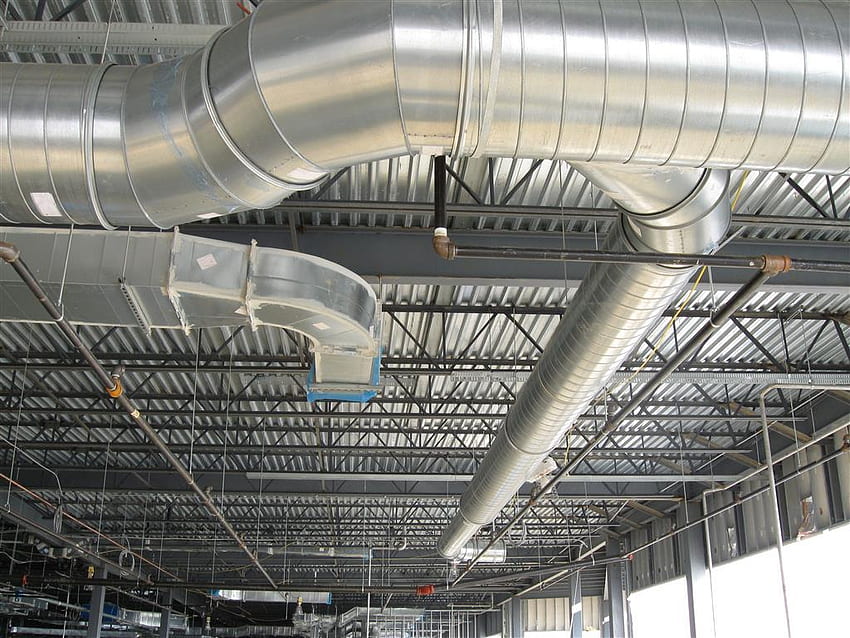Climatize Your Life: Mastering the Art of Heating and Air Conditioning
Climatize Your Life: Mastering the Art of Heating and Air Conditioning
Blog Article

In today's world, mastering the art of heating and air conditioning is more essential than ever. As climate change continues to alter our environment and our lives, the need for effective temperature control in our homes and workplaces becomes paramount. Whether the summer sun blazes overhead or winter's chill seeps through the walls, dependable heating and air conditioning systems can transform our interiors into comfortable sanctuaries.
Understanding how to optimize these systems not only enhances our comfort but can also lead to significant energy savings and reduced environmental impact. From selecting the right units to maintaining them for peak performance, this journey toward climatizing our lives is both a practical necessity and an opportunity for personal empowerment. Embracing these concepts allows us to create a harmonious living environment that adapts seamlessly to the changing seasons.
Understanding HVAC Systems
Heating, ventilation, and air conditioning, commonly referred to as HVAC, are essential components for maintaining comfort within residential and commercial spaces. HVAC systems are designed to regulate temperature, humidity, and air quality, making them vital in creating pleasant indoor environments. These systems typically consist of various elements, including furnaces, air conditioners, heat pumps, and ductwork, all working in tandem to ensure consistent and comfortable conditions throughout a building.
The heating component of an HVAC system usually involves a furnace or a heat pump. Furnaces generate heat by burning fuel or using electricity, while heat pumps transfer heat from one place to another, either pulling heat from the outside air during cold months or releasing heat in warmer months. Understanding how these heating methods operate helps homeowners choose the most efficient option for their needs, promoting energy savings and comfort.
Air conditioning plays a crucial role during warmer months, ensuring indoor spaces remain cool and comfortable. Central air conditioning systems use refrigerants to absorb heat from indoors and expel it outside, often requiring ductwork for distribution. There are also ductless mini-split systems that provide cooling without the need for extensive ducting. Each type of air conditioning system has its own set of advantages and installation requirements, making it important to select the right type based on space and individual preferences.
Energy Efficiency Tips
To maximize energy efficiency in your heating and air conditioning systems, start by ensuring your home is properly insulated. Effective insulation keeps warm air inside during winter months and prevents cool air from escaping in the summer. Focus on sealing gaps around windows and doors, as well as insulating attics and basements. A well-insulated home reduces the workload on your heating and cooling systems, leading to lower energy bills.
Another way to enhance energy efficiency is by investing in programmable thermostats. These devices allow you to set your heating and cooling schedules according to your routine. By adjusting the temperature when you're away or asleep, you can significantly reduce energy consumption without sacrificing comfort. Additionally, consider incorporating smart home technology that provides real-time data on system performance, helping you optimize energy use further.
Regular maintenance is crucial for keeping your heating and air conditioning systems running efficiently. Schedule annual inspections and cleaning to ensure that filters are replaced regularly and that the units are free of debris. This not only extends the lifespan of your systems but also maintains their performance, leading to better energy efficiency and comfort throughout your home.
ApexHeatAndAC Residential Cooling Solutions
Maintenance Best Practices
Regular maintenance of your heating and air conditioning systems is crucial for ensuring optimal performance and longevity. Schedule routine inspections at least once a year for both your heating and cooling systems. During these inspections, a qualified technician can check for any potential issues, clean vital components, and ensure that all systems are operating efficiently. This proactive approach can help you avoid costly repairs down the line and extend the lifespan of your equipment.
In addition to professional maintenance, there are several tasks you can handle yourself to keep your systems running smoothly. One of the simplest yet most effective actions is to regularly change or clean your air filters. Clogged filters restrict airflow, making your system work harder and consume more energy. Check your filters monthly, especially during peak usage seasons, and replace them as needed to maintain good air quality and efficiency.
Another important practice is to ensure that your outdoor units are free from debris and obstructions. Regularly inspect the area around your air conditioning unit for leaves, dirt, and other materials that can hinder airflow. Additionally, check the drainage system to make sure it's clear and functioning properly. Taking these simple steps will not only enhance your comfort but also improve the overall efficiency of your heating and air conditioning systems.
Report this page